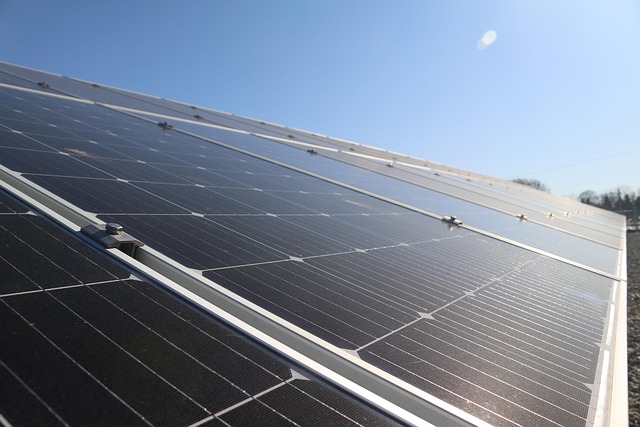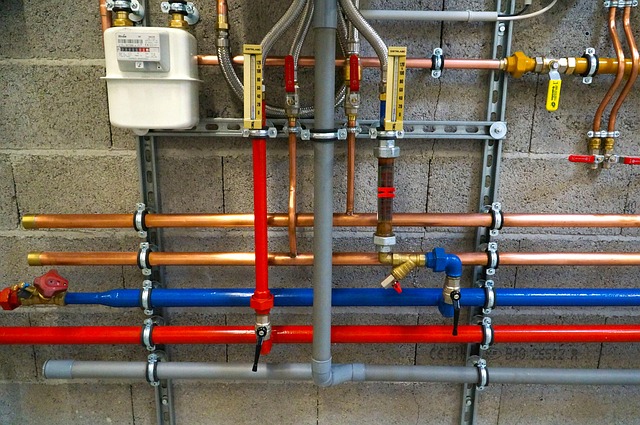Plumbing technologies have evolved dramatically, incorporating advanced cameras, sensors, remote-controlled vehicles (RCVs), IoT devices, data analytics, AI, and machine learning. These innovations enable plumbers to perform visual inspections, detect leaks and pressure changes, optimize water usage, and navigate complex plumbing networks with unprecedented accuracy and efficiency. By leveraging these modern tools, technicians achieve faster repairs, reduced downtime for homes and businesses, improved safety, energy savings, and proactive maintenance, paving the way for a smarter, more sustainable future in water management.
In today’s world, advanced plumbing technologies are transforming water management. From high-tech tools to remote monitoring systems, modern plumbing offers unprecedented precision and efficiency. This article delves into key areas driving this revolution: understanding contemporary plumbing technologies, exploring high-tech pipeline inspections, examining remote monitoring capabilities, and uncovering cutting-edge leak detection systems. By harnessing these advanced tools, we can ensure sustainable water management practices for the future.
- Understanding Modern Plumbing Technologies: A Brief Overview
- High-Tech Tools for Accurate Pipeline Inspections
- Remote Monitoring: The Future of Water Management
- Advanced Leak Detection Systems: Preventing Water Wastes
Understanding Modern Plumbing Technologies: A Brief Overview

Plumbing technologies have evolved significantly over the years, transforming from traditional methods to advanced, digital solutions. Today’s plumbers and technicians rely on a suite of sophisticated tools designed to diagnose and address plumbing issues with precision and efficiency. These modern plumbing technologies include high-tech cameras for visual inspection, smart sensors that detect leaks and pressure changes, and data-driven analytics platforms that interpret real-time data from plumbing systems.
By embracing these innovations, professionals can navigate complex plumbing networks with greater ease, identifying problems before they escalate. Moreover, advanced tools offer improved accuracy in repairs, reduced downtime for homes and businesses, and even energy savings through optimized water usage. This brief overview highlights the critical role that modern plumbing technologies play in shaping a more efficient, sustainable future.
High-Tech Tools for Accurate Pipeline Inspections

Modern plumbing technologies have introduced a suite of high-tech tools that are transforming pipeline inspections. One such innovation is the use of advanced cameras and sensors, which can now capture detailed images and data from hard-to-reach areas. These tools, often equipped with thermal imaging capabilities, help in identifying issues like leaks, corrosion, and blockages more accurately than ever before.
Additionally, remote-controlled vehicles (RCVs) have become invaluable for navigating through pipes without causing disruptions. These RCVs are mounted with high-resolution cameras and can transmit real-time video feeds, enabling plumbers to assess pipeline conditions from the comfort of their control rooms. This not only enhances safety but also allows for more precise troubleshooting, leading to faster and more effective plumbing solutions.
Remote Monitoring: The Future of Water Management

Remote monitoring is transforming the way we manage water systems, marking a significant leap forward in plumbing technologies. By deploying advanced sensors and IoT devices, utilities can gain real-time insights into water quality, flow rates, and infrastructure health. This enables proactive maintenance, reducing unexpected outages and minimizing water losses. Imagine being able to detect leaks or pressure fluctuations remotely, allowing for swift action before they escalate.
The future of water management looks smarter and more efficient thanks to these innovative plumbing technologies. Remote monitoring not only optimizes resource distribution but also contributes to sustainability goals by preventing waste. As this field continues to evolve, we can expect even greater integration of data analytics, artificial intelligence, and machine learning, further revolutionizing how we maintain and enhance our water infrastructure.
Advanced Leak Detection Systems: Preventing Water Wastes

Advanced Leak Detection Systems are transforming the plumbing industry by revolutionizing how we identify and address water leaks. These innovative technologies go beyond traditional methods, offering more precise and efficient solutions to prevent water waste. By employing a combination of sophisticated sensors, radio frequency (RF) signals, and smart data analytics, these systems can detect even the smallest leaks within complex plumbing networks.
This cutting-edge approach allows for proactive maintenance instead of reactive repairs. Plumbing technologies like these not only save homeowners and businesses from unexpected flood damage but also significantly reduce water consumption. With real-time monitoring and early leak detection, residents can avoid the wasteful loss of hundreds—if not thousands—of gallons of water each year, contributing to both cost savings and environmental conservation.
